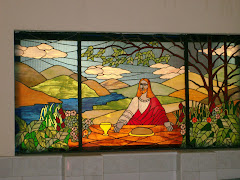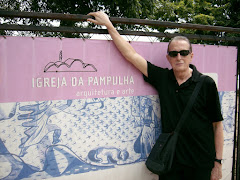Spring 1966
A white dove had been nailed to the door of the sixth grade classroom and its blood had dripped down to the sand. There were no students, no native teachers, no one except two scared American teachers. The dove was a sign that the people of Sapuk Village did not accept the new terms of student eligibility. Enrollment numbers had increased far more than was anticipated and the Education Department had just made a new ruling concerning maximum age/grade eligibility. So many students wanted to attend that the upper grades were over capacity. They were on strike and I was at a loss to remedy the problems myself.
I decided to return to the Moen District Office, back the way we had just come. As I left the main campus of the new school and turned onto the seaside path, I knew immediately that I was in trouble. The path, clear and passable just minutes ago, was crisscrossed with cut banana trees. These trees lay across the path as far as I could see. The saying that ‘self-preservation is man’s first instinct’ proved true. Not even thinking to turn around the safety of the school, I proceeded down the blocked road. My motorcycle at first easily jumped the cut trees. They were, however, strategically placed to make it near impossible to go at any ‘escapable’ rate of speed. Jumping and jumping my way to safety through the jungle, I was caught in an one-way escape route. The thing I most clearly remember is the silence that accompanied me through this flight. Rounding each corner I longed for the sight of a clear straight away. The next bend brought a new obstacle: rocks propelled from the jungle side across the road. To complicate matters, it started to rain.
The rocks were thrown without a sound. Music rushed through my head; an adventure movie in the making. But this was no dream, it was an attack on my life. I now seriously began to speed up and jump higher and higher to continue my journey back to the safety of numbers. A large rock hit the chain guard of the cycle and the engine temporarily skipped a beat or two. This caused me to fly up into the air losing my balance. In straightening my course, I saved my life as a rock flew directly across the path that I would have taken.
There were thoughts of dying; what would happen after my death? This was going to be a painful death. Would this be an instantaneous death or would I suffer greatly. Bleeding on a jungle path was not the way I thought I would die. But then I had never really thought about my death before. If death was imminent, I could accept that, but the process was the point that was going through my head. The process and the outcome: this must be the core debate. Why can we accept one and not the other?
Bleeding from my anklebone, rain soaked, in my disposable rain cape, I jumped the last banana tree barrier and found the home stretch. Fast and furious, I sped to the District Education office. This ordeal had taken only fifteen or so minutes but seemed an eternity. My arrival, bleeding and soaking wet, was met with quizzical looks
The next month it was time for my home leave after working on the island for two years. Everyone was sure I would not return. I did return after a summer to try to understand the frustration felt by the Sapuk people wanting the best for their youth but dealing with a bureaucratic system. Since that day I was called by many of the Chuukese: ‘he who the Sapukese tried to kill.’














